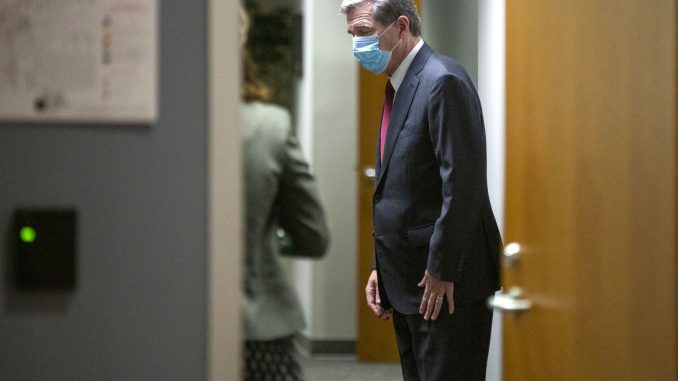
RALEIGH — North Carolina prison officials released a plan Thursday to test all of its inmates and staff members for the coronavirus, following a court mandate ordering the state to release a proposal for universal testing by June 22.
It will take at least 60 days to perform COVID-19 tests for all 31,200 offenders, Todd Ishee said during a news conference. The results, which will be analyzed by Burlington-based LabCorp, will go into the inmate’s health care records and be posted online.
Ishee said the state has already tested 9% of its inmates and has been testing county jail inmates transferred to state prisons. He noted those entering state prisons are being kept under quarantine until results are returned. Of the 717 people who have tested positive, 635 have meet state and federal health guidelines to be released, he said.
“Our priority is everyone’s health and their safety, and I mean everyone,” Ishee said.
Statewide, numbers released Thursday from North Carolina’s Department of Health and Human Services showed 1,333 new cases of coronavirus and a third straight day of record-high hospitalizations at 857.
Democratic Gov. Roy Cooper said during the news conference that he plans to release proposals next week, which are likely to open up more businesses while encouraging the use of face masks. Raleigh is imposing a citywide requirement for the use of face masks that will take effect at 4 p.m. Friday. Cooper is considering a similar mandate statewide next week with exceptions for young people and those with disabilities.
“If you’re going to make a law, you have to be careful about what you’re doing, you have to be specific and you have to have it based on your best evidence,” Cooper said. “You just can’t snap your finger and say, ‘Hey, it’s a rule. Everybody do it.’ It’s got to be something that’s well thought through and something that will be effective with the least intrusion that we can have on people.”
North Carolina is in its second of a three-phase reopening plan that is set to expire on June 26. Cooper said he’d make an announcement next week on whether to keep existing restrictions in place or transition to a phase 2.5 or 3.
“No decision has been made about that yet,” Cooper said.
The governor does not appear likely to scale back restrictions or demand residents stay at home. Barring health care systems being “overwhelmed,” he said he wouldn’t consider going backward in the reopening process.
Republican state lawmakers have long criticized Cooper for moving too slowly to reopen bars, gyms and other businesses. They are also considering proposals to reopen arcades, entertainment venues and allow for July 4 celebrations.
Cooper all but guaranteed a veto to any such proposal, though, saying it wouldn’t give local officials the flexibility they need to rein in the reopenings if public health data pointed in the other direction.
“It’s pretty easy to vote for a bill that lifts a restriction when you don’t have to deal with the consequences,” Cooper said. “I think it’s important for us to think about the consequences for everything we do.”


